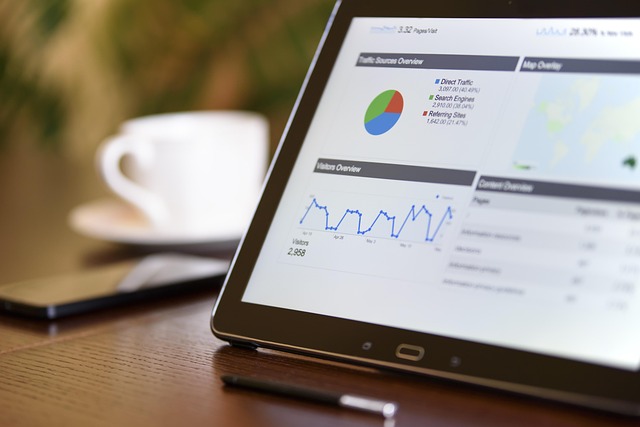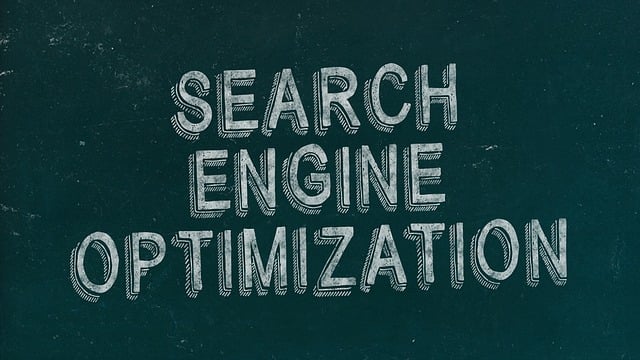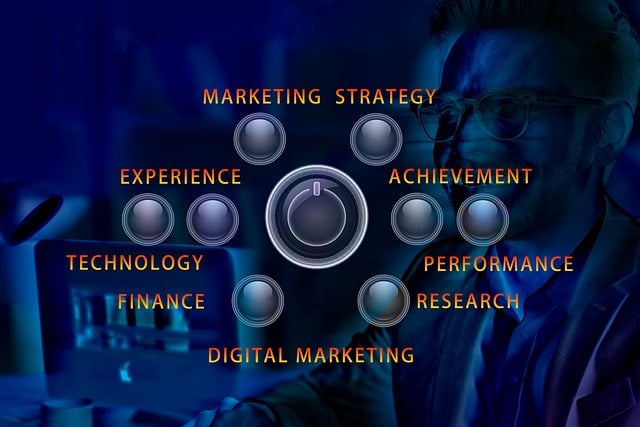In the digital era, Digital Marketing is crucial for business success. A robust campaign leverages platforms like social media, email, search engines, and mobile apps to reach broad audiences at low costs. Key steps include defining objectives, targeting demographics, selecting appropriate channels (e.g., SEO for organic growth, PPC for rapid results), creating compelling content, and using data-driven insights to optimize strategies. Targeted messaging, tailored content formats, and social media engagement maximize visibility and drive conversions. Continuous performance analysis and optimization ensure relevance in a fast-changing online environment, incorporating emerging trends like AI, mobile optimization, and immersive technologies.
In the dynamic landscape of modern marketing, Digital Marketing Campaigns (DMCs) have emerged as game-changers. This comprehensive guide delves into the intricate world of DMCs, offering a detailed overview for businesses aiming to excel in the digital realm. From defining target audiences and crafting engaging content to leveraging social media and analyzing performance, we explore essential strategies. Additionally, we glimpse into the future of digital marketing, highlighting trends that will shape the industry. Master these tactics, and you’ll harness the power of DMCs to drive growth and leave a lasting impact in today’s digital era.
Understanding Digital Marketing Campaigns: A Comprehensive Overview

In the digital age, understanding Digital Marketing Campaigns is paramount for businesses aiming to thrive. These campaigns encompass a strategic and diverse range of marketing tactics leveraging online channels such as social media, email, search engines, and mobile apps. The beauty lies in their ability to reach vast audiences, offer personalized experiences, and provide detailed analytics, all at a relatively low cost compared to traditional methods.
A comprehensive Digital Marketing campaign involves careful planning, creative content, and data-driven optimization. Marketers must define clear objectives, identify target demographics, and choose the right platforms and strategies. This might include search engine optimization (SEO) for organic reach, pay-per-click (PPC) advertising for quick results, social media marketing to build brand engagement, or email campaigns for direct customer communication. By integrating these elements effectively, businesses can craft compelling narratives that resonate with their audience, drive conversions, and ultimately, achieve their marketing goals.
Defining Your Target Audience for Effective Campaign Strategies

Defining your target audience is a cornerstone of successful digital marketing campaigns. Understanding who you’re trying to reach, their interests, behaviors, and demographics, allows for tailored messaging and optimized spending. By segmenting your audience into specific groups, you can create personalized content that resonates with each segment, driving engagement and conversions.
In the world of digital marketing, tools like analytics, customer relationship management (CRM) software, and surveys empower businesses to gather valuable insights about their customers. Leveraging this data enables marketers to identify pain points, aspirations, and online habits, ensuring campaign strategies are not just effective but also efficient in reaching the right people at the right time.
Creating Engaging Content: Key Elements of Successful Digital Marketing

Creating engaging content is a cornerstone of successful digital marketing strategies, captivating audiences and driving conversions in today’s competitive online landscape. The key lies in understanding your target demographic and crafting material that resonates with their interests, needs, and pain points. Well-crafted content can transform casual viewers into avid followers, fostering a sense of connection and loyalty. It humanizes brands, builds trust, and positions them as authorities within their niche.
Effective digital marketing content should be diverse in format, engaging multiple senses to maximize impact. Visually appealing designs, compelling videos, interactive infographics, and thought-provoking blog posts can all contribute to a robust online presence. Leveraging trends, incorporating relevant hashtags, and optimizing for search engines ensures that your content reaches the right people at the right time. Consistently delivering value through informative, entertaining, or inspirational content helps build a strong following and translates into tangible business growth.
Leveraging Social Media Platforms for Maximum Reach and Interaction

In today’s digital era, leveraging social media platforms is a cornerstone of successful digital marketing campaigns. These platforms provide an unparalleled opportunity to reach and interact with a vast global audience. By strategically curating content that resonates with target demographics, businesses can foster engagement, build brand awareness, and drive conversions. From user-generated content to paid advertising, each channel offers unique advantages for connecting with potential customers, cultivating loyal followers, and ultimately, boosting sales.
Effective social media marketing involves understanding the nuances of each platform – be it Twitter’s real-time conversations, Instagram’s visual storytelling, or LinkedIn’s professional networking. Tailoring content to align with the platform’s spirit and user behavior ensures higher visibility, click-through rates, and meaningful interactions. This multi-platform approach expands reach, diversifies engagement strategies, and positions businesses as active participants in their industry’s digital landscape.
Measuring and Analyzing Campaign Performance: Tools and Metrics

Measuring and analyzing campaign performance is a crucial aspect of digital marketing, offering valuable insights into what’s working and where there’s room for improvement. Marketers utilize a range of tools and metrics to track progress and optimize their strategies. These include web analytics platforms like Google Analytics, which provide data on website traffic, user behavior, and conversion rates. By examining these metrics, marketers can understand campaign reach, engagement levels, and the overall effectiveness of their digital marketing efforts.
Additionally, many platforms offering digital advertising services, such as Facebook Ads Manager or Google Ads, incorporate built-in analytics features. These tools allow for real-time monitoring of ad performance, enabling marketers to make data-driven adjustments to their campaigns. Key metrics often include click-through rates (CTRs), cost per click (CPC), and return on ad spend (ROAS), all of which help in evaluating the success and ROI of digital marketing campaigns.
Optimizing and Iterating: Refining Your Digital Marketing Approach

In the dynamic landscape of digital marketing, optimization and iteration are key to success. After launching a campaign, it’s crucial to step back, analyze performance metrics, and make data-driven adjustments. By closely examining click-through rates, conversion paths, and audience engagement, marketers can identify areas for improvement. This process involves refining messaging, tweaking visuals, and enhancing user experiences on various digital channels—from websites to social media platforms.
Regular iterations ensure that your digital marketing approach remains relevant and effective in today’s fast-changing online environment. Embracing a feedback loop where data guides decision-making allows you to stay ahead of trends and better connect with your target audience. As you optimize, remember to set clear goals and KPIs, enabling continuous improvement and maximizing the impact of future campaigns.
The Future of Digital Marketing: Trends Shaping the Industry

The digital marketing landscape is constantly evolving, with new trends emerging that shape and redefine how businesses connect with their audiences. As we move forward, several key trends are poised to dominate the industry, offering both challenges and opportunities for marketers. Artificial Intelligence (AI) and machine learning algorithms are set to play a more prominent role, enabling personalized content delivery and audience segmentation at unprecedented levels. This technology allows for data-driven insights, improving campaign targeting and effectiveness.
Additionally, with the rise of mobile internet usage, optimizing digital marketing strategies for various devices has become imperative. Voice search optimization, augmented reality (AR), and virtual reality (VR) experiences are also gaining traction, providing innovative ways to engage consumers. As consumer behavior continues to shift online, digital marketers must adapt by focusing on creating immersive, interactive content that captures attention in a competitive digital space.
